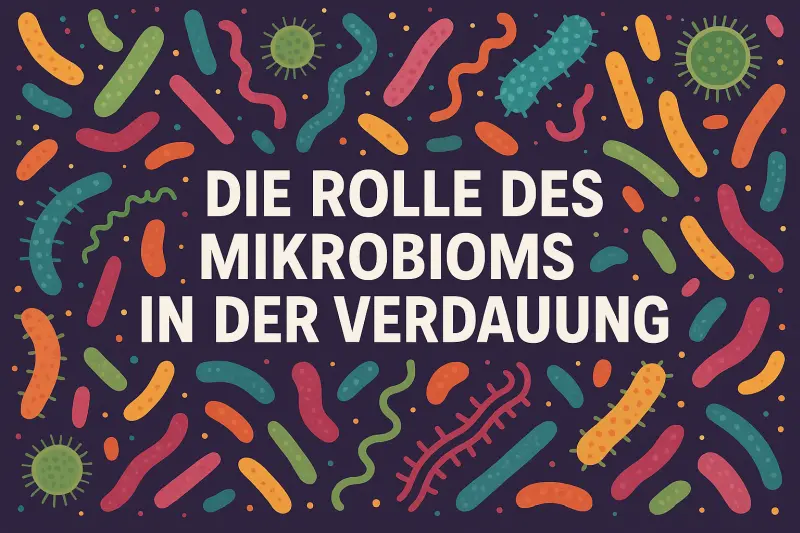
IgG tests for food in the jungle of guidelines
Almost all of us have had the more or less painful experience that nutrition is individual. “What you can tolerate without any problems is not good for me” or “This food is recommended because it is supposedly healthy but it makes me sick”. As children we were often forced to finish our plates, as adults we sometimes have problems getting a grip on our diet. Everyone obviously has their own personal nutritional needs and individual “digestive skills”. There is probably no such thing as a generally binding “healthy” diet. It’s clear that the food industry and its advertising doesn’t see it that way. Because they only want what’s best for us, our money.
Numerous chronic diseases are linked to nutrition.
Irritable bowel syndrome, diabetes, obesity, metabolic syndrome and rheumatism are just a few examples. There are a number of mechanisms by which our body can react to harmful influences, most of which involve our immune system. A classic type I allergy (mediated by mucosal mast cells and IgE) is fortunately relatively rare in the case of food. This includes, for example, allergies to nuts. The symptoms are often acute and sometimes even dramatic so that the patient usually knows “his allergen” and therefore avoids it. Type III food allergies (IgE-independent allergies), in which the serum concentrations of specific IgG are elevated, are much more common. Here the symptoms occur with a delay. They are manifold and by no means less dramatic, as the patient often becomes chronically ill as a result. One example of this is coeliac disease, an immune reaction against components of gluten, the gluten protein in cereals.
IgE and IgG
In contrast to IgG tests, a food IgE test (RAST test) is also a clinical standard in Germany and is covered by health insurance. One of the disadvantages of IgE testing is the very short biological half-life of this immunoglobulin: Immediately during an allergic reaction, specific IgE values can reach an enormous level, but after a few days they are no longer measurable. The same applies to a subclass of IgG, IgG4, which a few years ago was highly praised as an allergy-specific IgG and also received a lot of media attention. In the meantime, however, the enthusiasm for this immunoglobulin has waned, allergological guidelines warn – probably rightly – against IgG4 tests, which can still be found in the portfolio of statutory health insurance physicians.
Diagnosis of lactose intolerance and fructose malabsorption
There are also other food intolerances that are largely independent of the immune system. For example, lactose intolerance, i.e. the inability to utilize lactose, is an enzyme defect (the enzyme lactase is missing in the intestine) or fructose malabsorption, in which the mucosal cells lack a certain protein (the fructose transporter GLUT5). Such diseases can be diagnosed with genetic tests, for example, but not with immunoserological allergy tests.
Ethnic nutritional needs
Especially in times of extensive migration movements, when many people from distant countries and foreign cultures come to us, it is noticeable that there are “ethnic nutritional needs”, which are certainly not only religiously based but can also be based on solid biology. The numerous Arab grocery stores that are springing up in our country are a clear indication of this. Many of the new arrivals are suddenly suffering from illnesses, which are probably also linked to the changed food supply here.
Individual arsenal of reactions
Diagnostics and therapy are made even more difficult by the fact that it is not generally possible to associate a particular symptom with a particular food. Unfortunately, it cannot be said that migraines are always triggered in people who have an intolerance to milk, for example. Completely different symptoms can also occur. Nevertheless, many of the patients will experience an improvement in their symptoms if they follow their personal test result and follow their personal diet. There is probably an individual arsenal of reactions: One patient is more of a “headache type”, while another reacts to the same allergen with intestinal problems and a third with skin reactions. But many benefit from a specific individual diet once the personal pathogen has been identified.
Evidence-based medicine and guidelines
The overall situation is therefore confusing, not only for patients but also for doctors, and this is one of the main reasons why many allergists are so critical of food IgG tests. Until now, it was always assumed that all people are medically identical, that there is not only a “healthy” diet for everyone to the same extent, but also that a certain medication has the same effect on everyone. This is referred to as “evidence-based medicine”. On the other hand, it has always been known that this assumption is not entirely correct. That is why there is a subdivision, for example, into gynecology, pediatrics, or geriatric medicine. Nevertheless, efforts to achieve “standardized medicine” are a priority. For the approval of a drug or a diagnostic procedure, studies are therefore conducted for which inclusion and exclusion criteria must be constructed. The results then form the basis for medical guidelines, which are also legally binding for therapists. However, guidelines consciously accept that a certain number of patients will not be helped and may even be harmed. The problems of “guideline medicine” are also increasingly present in the media. Similar developments have since been observed in numerous other areas of medicine and even the EU has now launched an extensive research program to promote individualized medicine to complement evidence-based medicine.
National Institute of Health (NIH) recommends IgG tests for the diagnosis of food intolerances
For around 35 years, the testing of serum samples for IgG reactions to food has been an established diagnostic procedure, not only in complementary medicine and dietetics but also in ‘conventional medicine’. There is an abundance of clinical studies and a large number of laboratories that carry out such tests and, of course, many companies that manufacture and sell the corresponding test systems. While the National Institute of Health (NIH) in the USA explicitly recommends serum IgG tests for the diagnosis of food intolerances in its current guideline, European allergy associations under the leadership of the German Society for Allergology and Clinical Immunology (DGAKI) are more or less vehement opponents of such tests, as is regularly demonstrated in numerous publications and also in media appearances. There is often talk of pointless and expensive tests that are of no medical value and whose sole purpose is to “rip off” patients. This view can be summarized as follows: “Serum IgG titres against food components are basically medically meaningless, and a corresponding diagnosis and diet is therefore nonsensical”. It is cemented in a DGAKI position paper (albeit excluding any liability).
Evidence-based or eminence-based medicine?
The DGAKI position paper has since been adopted by several national and international professional associations and incorporated into various guidelines. The scientific basis for this is “the consensus of experts”. A higher-quality evidence base in the form of randomized controlled clinical trials with corresponding patient numbers does not yet exist for this, so it is more a case of “eminence-based” medicine. Nevertheless, the DGAKI now also acknowledges that the discussion is controversial. It should also be mentioned that a position paper is neither an original scientific paper nor a clinical study, but merely a literary statement of position by individual authors that is not based on experimental data or clinical studies.
Guidelines of the medical associations
A close study of the relevant guidelines on food intolerances and the corresponding diagnostics reveals astonishing differences. The latest and most comprehensive guideline on food allergies was published by the expert group of the National Institute of Health (Bethesda, USA) in 2010. Numerous clinical studies are evaluated here and the authors come to the conclusion that serum IgG tests for food antigens are recommended for a number of diseases (Chapter 4.3).
Celiac disease is detected by IgG test
Celiac disease, the chronic intestinal disease mentioned above, correlates with a serum IgG titer against the wheat gluten protein gluten (2). A gluten-free diet is the only sensible therapy for these patients (3). The diagnostic method of using IgG tests to detect serum antibodies against gliadin (a component of gluten) is now recommended in the corresponding guideline of the German Society for Gastroenterology, Digestive and Metabolic Diseases (DGVS) and the German Coeliac Disease Society (DZG) (recommendation 2.4). A food IgG test is therefore also part of the guideline here.
IgG titres against food also in healthy people
One of the criticisms of the DGAKI of food IgG tests is that IgG titres against food can also occur in people who do not show any specific symptoms. It should be noted that the result of a food IgG test only becomes meaningful in the overall clinical context of a patient. But in principle, this applies to every immune serology. An IgG titer against HIV does not necessarily mean that the patient in question has AIDS. His body has come into contact with the viral protein and he is now HIV positive. He has to take certain precautions, but is basically healthy. However, if the same IgG titer is determined in a patient with a greatly reduced T-cell count and immunodeficiency, this is a definitive criterion for the diagnosis of AIDS.
Clinical studies prove correlation between symptoms, IgGdetermination and omission diet
There is now a wealth of clinical studies that prove the correlation between symptoms, IgG determination and the resulting omission diet. And, of course, thousands of therapists’ experiences in using the test instrument in daily practice are even more numerous. These are all important reasons for the positive attitude of American experts.
Food IgG tests are controversial
A scientific discussion on the topic of IgG reactions to food has so far been avoided by the European allergy societies or only conducted in the form of position papers, editorials, interviews or in court. However, hard scientific data has not yet been presented by the allergology community. Some of them report that serum IgG titers against food are indeed clinically significant, the others leave the question open. None of the studies provides unequivocal scientific proof (e.g. as a placebo-controlled clinical study) that a serum IgG test against food is medically worthless. The fact that many people have IgG titres against gliadin without ever developing coeliac disease does not change this. Many publications that demonize food IgG tests state that IgG reactions against food occur constantly as part of the “normal immune response” and therefore do not allow any conclusions to be drawn about a disease. However, this criticism applies in principle to all immune serology: a serum IgG titer against HIV in no way means that the patient in question has AIDS. Although his immune system has come into contact with the viral proteins, it is unclear if and when the patient will fall ill. Conversely, the same anti-HIV IgG titer in an immunocompromised patient with a specifically reduced T-cell count is diagnostic evidence of AIDS.
IgG test with symptoms can have fundamental clinical relevance
The same applies to food diagnostics: a serum IgG titer against certain foods alone is certainly of little significance. In connection with a certain symptomatology, however, it can acquire fundamental clinical relevance. There are indeed providers who merely test blood samples, send out dietary recommendations and issue high bills without ever having a therapist, taking a medical history or counseling the patient. On the other hand, however, doctors and clinics that carry out these diagnostics in a clinical context deserve the support of the professional associations and, of course, research on this topic must (be allowed to) continue.
Conclusion
It is undisputed that, as in all medical fields and also in the field of nutritional medicine, there are dubious providers and that there is strong competition for markets. However, the decision on the choice of diagnostic and therapeutic means is ultimately left to the treating therapist as he is also responsible for this. The sometimes controversial opinions on the subject of food intolerances make work in this area particularly difficult. It is clear that laboratory findings alone must never replace medical work and that every therapy must be integrated into an overall medical context. In the interests of good scientific practice, we should also endeavor to use the best available knowledge, i.e. the best available evidence base, and communicate it accordingly. A blanket prejudice, especially when it appears in television programs and newspaper articles, may unsettle patients, but it does not help them with their health problems.
Prof. Gustav Jirikowski, November 2017
Literature references:
Caspary W F. Gluten – occurrence and toxicity in celiac disease. Nutrition and Medicine 2009; 24: 56 – 62
Felber J. et al. Results of an S2k consensus conference of the German Society for Gastroenterology, Digestive and Metabolic Diseases (DGVS) together with the German Celiac Disease Society (DZG) on celiac disease, wheat allergy and wheat sensitivity. Gastroenterol 2014; 52: 711-743
Fenton MJ et al: Guidelines for the Diagnosis and Management of Food Allergy in the United States: Report of the NIAID-Sponsored Expert Panel. J ALLERGY CLIN IMMUNOL 2010; 126: 1-58
Jirikowski G: Rebuttal: Diagnosis of food allergies: IgG dispute. Dtsch Med Wochenschr 2011; 136: 1495-1496
Kleine-Tebbe J.No recommendation for IgG and IgG4 determinations against food. Ernährungsmed 2010; 35: 310-313.
Kleine-Tebbe J , Reese I, Ballmer-Weber BK, Beyer K, Erdmann S, Fuchs T, Henzgen M, Heratizadeh A, Huttegger I, Jäger L, Jappe U, Lepp U, Niggemann B, Raithel M, Saloga J, Szépfalusi Z, Zuberbier T, Werfel T, Vieths S, Worm M: No recommendation for IgG and IgG4 determinations against food. Allergo J 2009; 18: 267-273
Krause M.: IgG-mediated food allergy as a trigger of fibromyalgia symptoms and the influence of an elimination diet. Dissertation at the LMU Munich. http://deposit.ddb.de/cgi-bin/dokserv?idn=977751619&dok_var=d1&dok_ext=pdf&filename=977751619.pdf
Leffler DA, Edwards George JB, Dennis M, Cook EF, Schuppan D, Kelly CP: A prospective comparative study of five measures of gluten-free diet adherence in adults with coeliac disease. Aliment Pharmacol Ther. 2007 Nov 1;26(9):1227-1235.
Mothes T, Uhlig HH, Richter T.: New aspects of antibody determination for the diagnosis of celiac disease. Dtsch Med Wochenschr. 2009 Jul;134(30):1525-1528.
German Network for Evidence-based Medicine, http://www.ebm-netzwerk.de/grundlagen/images/evidenzklassen.jpg/view
Rist PM, Buring JE, Kurth T: Dietary patterns according to headache and migraine status: A cross-sectional study. Cephalalgia. 2015 Aug; 35(9): 767-775
Städter A. Gluten, lactose and co. the enemy on my plate. Mitteldeutsche Zeitung, 28.10. 2017
Worm M, Reese I, Schäfer C, Niggemann B, Raithel M, Werfel T: Diagnosis of food allergies: IgG dispute. Dtsch Med Wochenschr 2011; 136: 1493-1495






